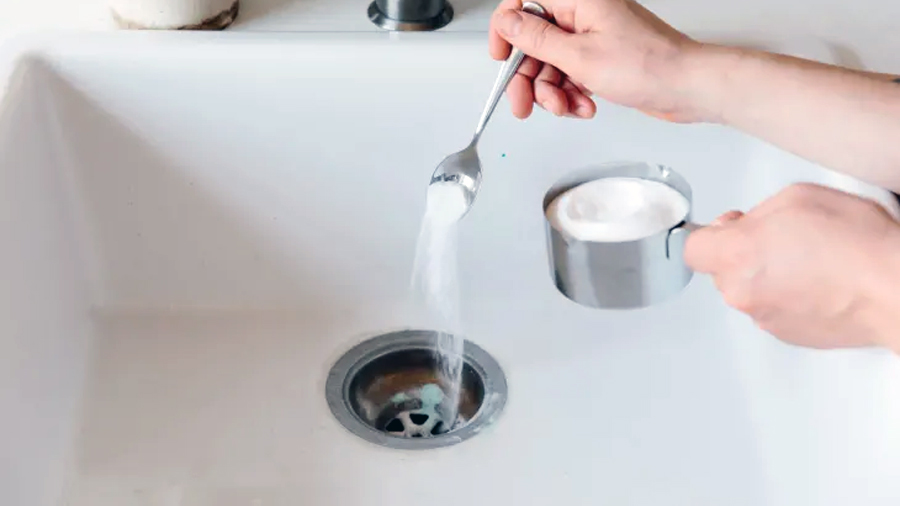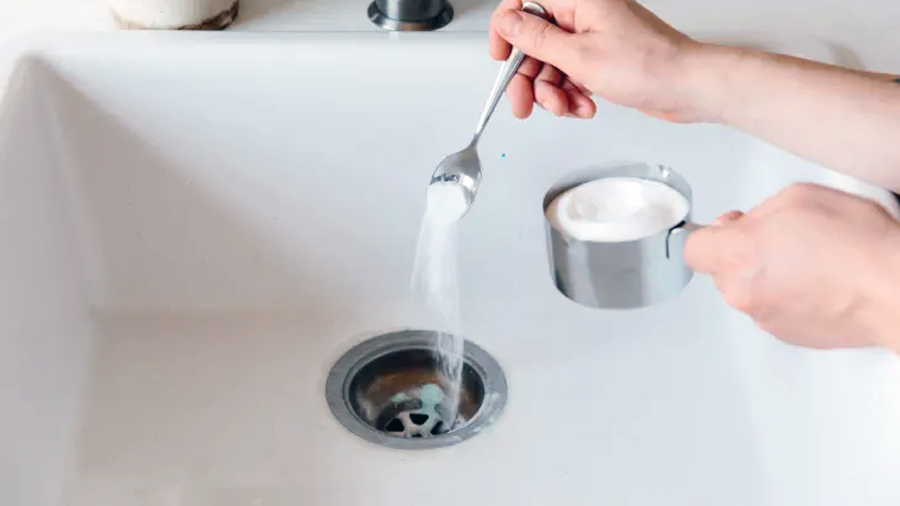
How to Clean a Smelly Kitchen Sink
We often end up spending a lot of time in the kitchen, and more often than not, we’re welcomed with delicious smells.
But, once in a while, odours might emanate from the kitchen, ruining the moment. If you’re wondering where these smells come from, take a look at your kitchen sink. In spite of the best efforts to keep it clean, we tend to work our sinks too hard, which results in foul smells.


Usually, this is because some debris is stuck and needs to be cleaned out. But now, you’re faced with the unwelcome prospect of ridding yourself of the stench and making your kitchen sink smell nice again. There are quite a few ways in which you can do this.
Most of them are simple DIY methods that don’t require professional assistance and use materials that you would easily find at home.
Let us dive into it without further delay.
What to do if Kitchen Sink Smells?
If your kitchen sink is smelling, you’ve got to diagnose the cause of the problem first. It could mean that the water is draining slowly or not draining at all. Usually, debris clogging the pipe causes this kind of blockage and leads to the smell.
In the event that you smell rotting food, it could mean that some of it happen to be stuck to the side of the pipe. Furthermore, if you feel you can smell something like rotting eggs, it could mean that sewer gases are escaping due to some problem with the U-bend.
No matter what, you have to follow some quick and easy steps to get the smell out.
Methods of Cleaning Kitchen Sink
1. Use Water and Soap
Food residue might sometimes cause a bad smell. The best way is to put in a sink stopper and then fill it with warm water. Mix a bit of dish soap into it – about a teaspoon should be enough. Then, let the solution sit for around ten minutes.
Put on your kitchen gloves and swirl the contents around well. Make sure you scrub the sides and base of the sink to loosen any debris. Then, flush down the water.
2. Clean the Drain with Vinegar and Baking Soda
It is hard to get grease or grime out since they tend to be stubborn. Diligent scrubbing is not the solution all the time, either. But, a combination of baking soda and vinegar can work well.
You have to boil a kettle of water and set it aside. Then, pour a cup of baking soda, after which you have to pour some vinegar into the drain. The solution will begin to effervesce in a short while. Following this, you must pour the hot water you kept aside earlier.
Baking soda is abrasive, while vinegar is astringent. Combined with the hot water, these will scour out the walls. Finally, you can run cold water for some time to clean out the remaining baking soda after the job’s done.
3. Sanitizing Impeller Plates and Disposal Blades
The impeller plate and disposal blades are involved in macerating the food. Thus, there are times when residue accumulates, leading to noxious odours. The best way to clean them is by getting two ice cubes and putting them into the drain of the sink. Then, put one cup of table salt.
Have the cold water tap running, and turn on the garbage disposal. This will crush the ice instantly. The abrasive action of the ice, along with the salt, will loosen any debris. It will go down, and the smell will also disappear after a while.
How to Minimize Further Odors
Even though you rid the kitchen sink of smells, you’ll still have to ensure that future odours don’t plague you. The best way to do this is by developing some good habits. For example, it is advisable to run cold water through the drain for at least 30 seconds prior to and after disposing of food.
This washes away the remains without causing the sink plumbing to get congealed. Moreover, we suggest using the disposer for soft foods and avoid dumping hard items like bones or shells. These can get stuck and, in turn, trap other debris.
As a final precaution, we recommend not leaving soiled dishes in the sink overnight. Nobody enjoys doing dishes immediately, but if left unattended, the food debris might harden, leading to odours.
Final Words
Although a foul-smelling sink can be troublesome, it’s quite easy to tackle if you follow the steps outlined above. After all, regular cleaning and upkeep go a long way in maintaining top-notch hygiene.
While the cleaning process is straightforward, please do not hesitate to reach out to us if you need any kind of assistance.
On that note, we will sign off. Bye for now!